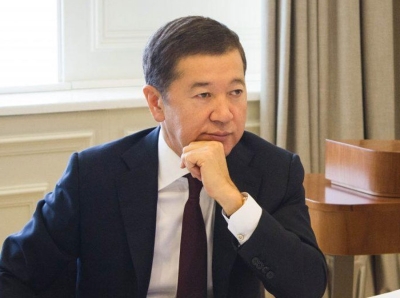Afghanistan two years after the Taliban takeover
Two years ago, after the withdrawal of Western troops from Afghanistan, the Taliban entered Kabul and took control of the country once more. Although the economy has not collapsed, millions live in poverty. The situation is particularly difficult for women and girls, who among other things are no longer allowed to study or attend higher education and are only allowed to travel with an escort.
At least there’s a little more stability now
The Irish Examiner points out that economically and security-wise the situation in Afghanistan has improved:
“The Taliban face no significant opposition that could topple them. They have avoided internal divisions by falling in line behind their ideologically unbending leader. They have kept a struggling economy afloat, in part by holding investment talks with capital-rich regional countries, even as the international community withholds formal recognition. They have improved domestic security through crackdowns on armed groups such as the Islamic State.”
Dictatorship and poverty
The people of Afghanistan barely benefit from the country’s current relative stability, comments Alberto Cairo, Red Cross envoy to Afghanistan, in La Repubblica:
“Afghanistan is a theocratic dictatorship. ... The mullahs and mawlawis can freely interpret the Islamic scriptures, discussion is not possible, Shiites and Isma’ilites are labelled heretics and hardly tolerated. The Pashtun ethnic group dominates, Tajiks, Hazaras and Uzbeks are excluded. The Taliban claim to have the support of the entire population (which is not true). ... World Bank reports say inflation is down, the currency is stable, tax revenues are up. ... That may be so. But there have never been so many poor people.”
Bring Afghan women to safe countries
More must be done to help the women of Afghanistan, urges Parwana Paikan, Deputy Chief of Mission at the Afghan Embassy in France, which does not recognise the Taliban:
“It’s time for the world to stop merely ‘following’ the situation in Afghanistan. ... To bring about positive changes in Afghanistan, efforts must be coordinated, diplomatic channels must be exploited, all economic and political levers must be set in motion and dissuasive sanctions must be implemented. In addition, it is important to support the resettlement and asylum of Afghan women and girls in countries that offer them security and opportunities for a better life, while preparing them to play an important role in future decision-making for their country.”
Effectively left to its own devices
The West has hardly any influence in the country now, the Frankfurter Rundschau comments:
“The Taliban are laying claim to the many billions of dollars in state assets that have been frozen, but they are not prepared to make any compromises in return. Or even to enter into talks. ... At any rate, the Biden administration is hardly bothering with Afghanistan any more. ... And Germany and the other EU states are basically following the US example. In the current context they had no choice — after all, they were only ever in the passenger seat. Besides, the Taliban make no distinction between the US and Europe. Hence, Germany and the other EU states have no choice but to leave Afghanistan to the Taliban.”
The key lies in the economy
Europe must develop an independent and business-oriented strategy, former EU ambassador Jean-François Cautain demands in Libération:
“In the run-up to the 2024 US presidential elections, the Biden administration must stick to its course of combining sanctions and humanitarian aid. Europe is not subject to this constraint and must develop its own strategy. The key lies in helping the Afghan economy get back on its feet. Only a revival of the economy can overcome the current humanitarian crisis and thus limit the exodus to Europe.”









